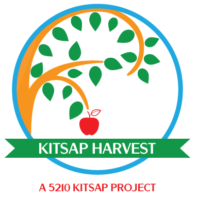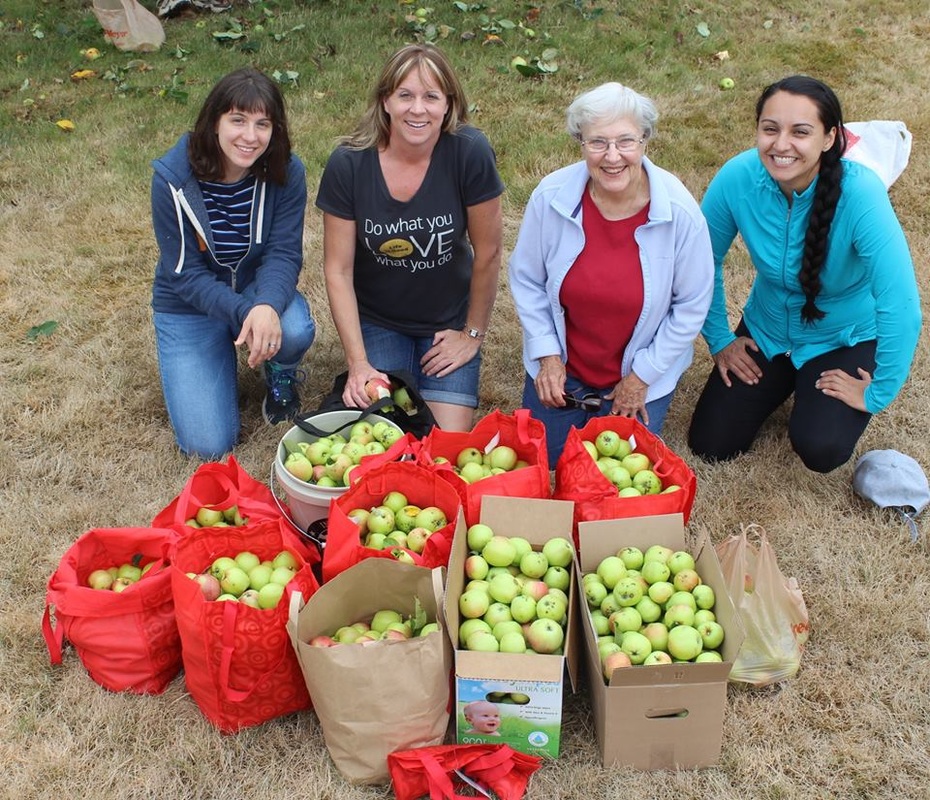
During the second year of the program, Kitsap Harvest created 39+ new community partners. Most of these partners were accrued by providing education and gleaning resources to the staff and volunteers. We reached out to programs such as Kitsap Youth Leadership, WIC, Olalla Recovery Center, Olympic Community College, Kitsap Community Resources Healthy Eating and Cooking class. We even had an opportunity to take one of these groups out for a gleaning experience after sharing about the impacts of our program. A multitude of locations needed more local, timely, fresh food access.
There were multiple opportunities to get the word out. Partnering with our local library allowed us to keep our information up for display. As our program continues, we will commit to providing a gleaning class at one of their workshops.
Port Orchard Library Seed Exchange program partnered with Grow-A-Row
The approach of education for produce recovery is extremely important in the second year of the VISTA program. The more invested community partners we can involve in our programming, the more support we will have when we move into our third year and discuss sustainability. We believe that a sustainable gleaning program will be stronger with multiple players that bring many things to the table.
We broke our education programming down into three levels:
-
Education to possible gleaning volunteers
-
Education to stakeholders
-
Education to the public.
Education to possible gleaning volunteers occurred in many locations and our key theme was to discuss the environmental impact and the hunger relief of gleaning efforts. This was another goal of attending the Farmers Market. We also visited numerous coalitions, board meetings, and network meetings for organizations interested in food production and access.

Kitsap Harvest volunteers providing community education at the Bremerton Farmers Market.
In the second year of the gleaning program, Kitsap Harvest hosted 3 community meetings that followed in the footsteps of the Growing Connections meetings originally developed from Northwest Harvest. These community meetings were open to anyone who is interested in forming a network focusing on food access. We called the network Kitsap Harvest Food Access Network (KHFAN). This was very instrumental at the beginning of the year in bringing many stakeholders together. Unfortunately, we learned that hosting these meeting was very time intensive. As our focus was really developing a gleaning system, we needed to pause on hosting these meetings during the summer harvest season. Our hope would be to pick these meetings back up and use this as an education platform when the next VISTA comes on board.
Education to the public was extremely important. From presenting in a healthy eating class at Olympic College to meeting with individuals at public housing sites, informing individuals on access points for received fresh produce is beneficial for everyone’s overall health. Gardening and food donations is a wonderful topic to discuss and have been always well received when invited to present. Make sure to have materials that support education around gardening and Grow-A-Row as this is another means of self-sufficiency or a way of providing an opportunity to give.


